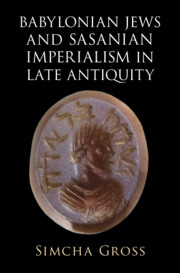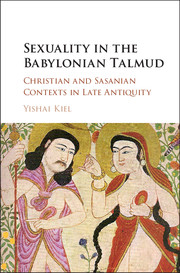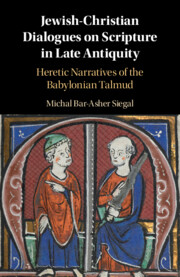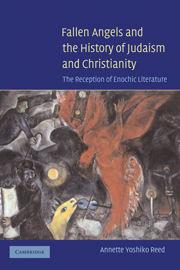Babylonian Jews and Sasanian Imperialism in Late Antiquity
- Author: Simcha Gross, University of Pennsylvania
- Date Published: April 2024
- availability: Available
- format: Hardback
- isbn: 9781009280525
Hardback
Other available formats:
eBook
Looking for an inspection copy?
Please email [email protected] to enquire about an inspection copy of this book
-
From the image offered by the Babylonian Talmud, Jewish elites were deeply embedded within the Sasanian Empire (224-651 CE). The Talmud is replete with stories and discussions that feature Sasanian kings, Zoroastrian magi, fire temples, imperial administrators, Sasanian laws, Persian customs, and more quotidian details of Jewish life. Yet, in the scholarly literature on the Babylonian Talmud and the Jews of Babylonia , the Sasanian Empire has served as a backdrop to a decidedly parochial Jewish story, having little if any direct impact on Babylonian Jewish life and especially the rabbis. Babylonian Jews and Sasanian Imperialism in Late Antiquity advances a radically different understanding of Babylonian Jewish history and Sasanian rule. Building upon recent scholarship, Simcha Gross portrays a more immanent model of Sasanian rule, within and against which Jews invariably positioned and defined themselves. Babylonian Jews realized their traditions, teachings, and social position within the political, social, religious, and cultural conditions generated by Sasanian rule.
Read more- Challenges a pervasive historical paradigm in the study of ancient Jews that treats them as siloed and isolated from their surroundings
- Models how to make an often opaque and rhetorically narrow religious text – the Talmud – speak to its own larger historical context
- Explores different ways to study Jews alongside Christians and other religious communities outside the binary of contact or conflict
Reviews & endorsements
'Simcha Gross's brilliant new book.' Jeffrey L. Rubenstein, Jewish Review of Books
See more reviews'A seminal, erudite, and ground-breaking study …' James A. Cox, Midwest Book Review
'For specialists this volume is essential reading and will maintain that status well into the future. But even those without such training will benefit as much from Gross's methodological meticulousness as from his academic argumentation. … Essential.' L. J. Greenspoon, CHOICE
Customer reviews
Not yet reviewed
Be the first to review
Review was not posted due to profanity
×Product details
- Date Published: April 2024
- format: Hardback
- isbn: 9781009280525
- length: 360 pages
- dimensions: 235 x 159 x 27 mm
- weight: 0.69kg
- availability: Available
Table of Contents
Introduction: Toward a new history of Jews and the Sasanian Empire
1. Jewish society under Sasanian rule: from isolation to integration
2. Competing for power: Jewish elites and Sasanian culture
3. Beyond 'tolerance': the logics of Sasanian violence against Jews
4. Forgetting persecution: memory and anti-martyrdom in the Babylonian Talmud
5. Rabbis and fire temples: navigating a Zoroastrian empire
6. Kings and religion in the Talmud and in the imagination of Sasanian communities
Conclusion: the Sasanian Empire from the perspective of the Jews.
Sorry, this resource is locked
Please register or sign in to request access. If you are having problems accessing these resources please email [email protected]
Register Sign in» Proceed
You are now leaving the Cambridge University Press website. Your eBook purchase and download will be completed by our partner www.ebooks.com. Please see the permission section of the www.ebooks.com catalogue page for details of the print & copy limits on our eBooks.
Continue ×Are you sure you want to delete your account?
This cannot be undone.
Thank you for your feedback which will help us improve our service.
If you requested a response, we will make sure to get back to you shortly.
×






